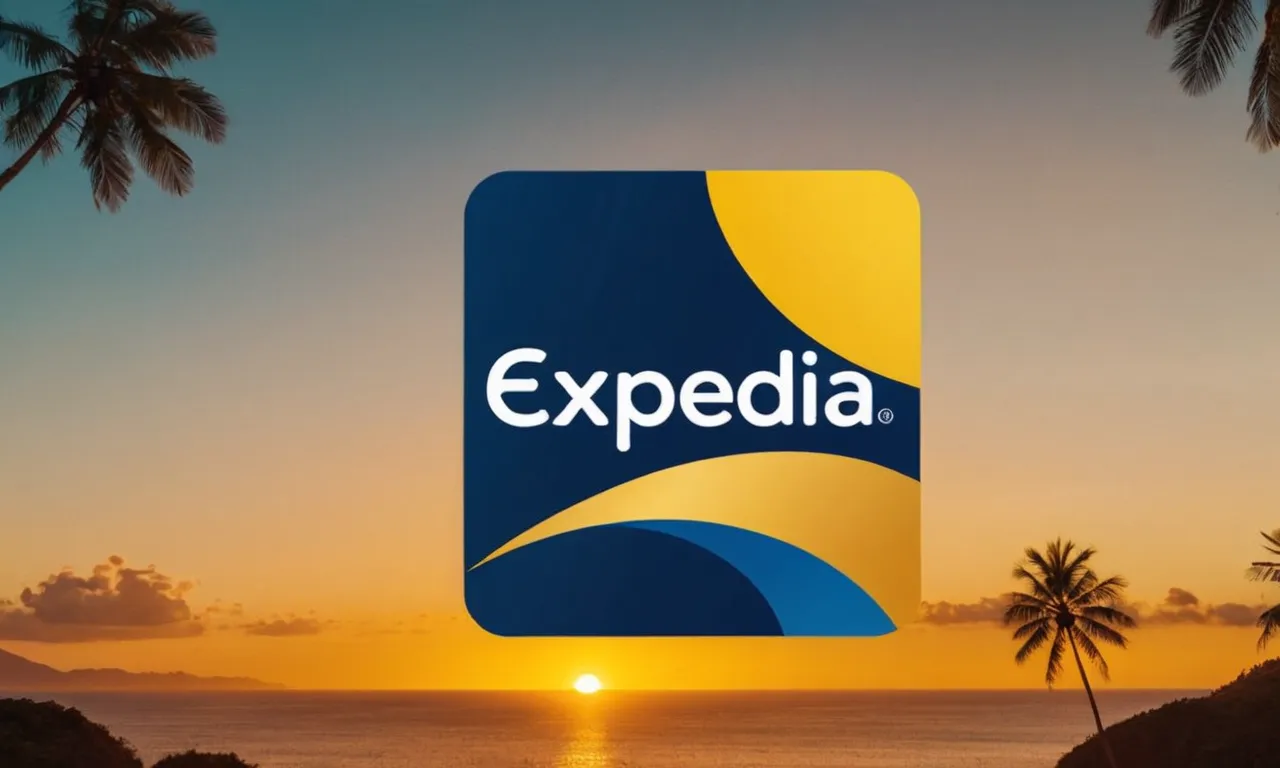Who Did Expedia Merge With? A Comprehensive Guide
In the ever-evolving landscape of the travel industry, mergers and acquisitions have become a common occurrence as companies strive to expand their reach, diversify their offerings, and gain a competitive edge.
One such merger that has captured the attention of travelers and industry experts alike is the union between Expedia and another major player in the online travel space.
If you’re short on time, here’s a quick answer to your question: Expedia merged with Orbitz Worldwide in 2015, acquiring the company for $1.6 billion.
In this comprehensive article, we will delve into the details of this merger, exploring the motivations behind it, the companies involved, and the impact it has had on the travel industry. We will also examine the key players, the challenges faced, and the strategies employed to navigate this significant business move.
The Companies Involved
Expedia: A Pioneering Force in Online Travel
Expedia, founded in 1996, has been a trailblazer in the online travel industry. It was one of the first companies to recognize the potential of the internet for booking travel arrangements, and it quickly became a household name.
With a user-friendly platform and a vast inventory of hotels, flights, rental cars, and vacation packages, Expedia has revolutionized the way people plan and book their trips. According to their website, Expedia Group operates over 200 travel booking sites in more than 70 countries, making it a true global powerhouse.
Over the years, Expedia has continuously expanded its offerings and services, staying ahead of the curve in an ever-evolving industry. They have embraced technological advancements, such as mobile apps and virtual reality tours, to enhance the user experience.
Additionally, Expedia has acquired several other travel companies, including Orbitz Worldwide, further solidifying its position as a leader in the online travel market.
Orbitz Worldwide: A Formidable Competitor
Orbitz Worldwide, founded in 2001, was a formidable competitor in the online travel space. It offered a comprehensive platform for booking flights, hotels, rental cars, and vacation packages, much like Expedia.
Orbitz was known for its innovative features, such as Price Assurance, which allowed customers to receive a refund if they found a lower price on another site after booking.
Despite its success, Orbitz faced increasing competition from larger players like Expedia and Priceline. In 2015, Expedia acquired Orbitz Worldwide for $1.6 billion, a move that consolidated the online travel industry and strengthened Expedia’s position in the market.
The merger allowed Expedia to expand its global reach and customer base, while also gaining access to Orbitz’s innovative technologies and loyal customer base. 😊
The acquisition of Orbitz Worldwide by Expedia was a strategic move that aimed to enhance the company’s competitiveness and market share. By combining their resources and expertise, Expedia and Orbitz were able to offer travelers a wider range of choices and better deals, further cementing their dominance in the online travel industry.
👏
The Merger: Motivations and Rationale
The merger between Expedia and another major player in the online travel industry was a strategic move driven by several key motivations and rationales. At the forefront of this decision was the desire to expand market share and global reach, leverage complementary strengths and offerings, and achieve economies of scale and cost efficiencies.
Expanding Market Share and Global Reach
By combining forces, the merged entity aimed to solidify its position as a dominant player in the highly competitive online travel market. According to industry reports, the global online travel market is projected to reach a staggering $1.1 trillion by 2027 (Source: GrandViewResearch).
With a larger combined customer base and a more extensive global footprint, the merged company could tap into new markets and attract a broader range of travelers 😍. This strategic move enabled them to offer a more comprehensive range of travel services, catering to diverse preferences and needs across various regions and demographics.
Leveraging Complementary Strengths and Offerings
The merger brought together two companies with complementary strengths and offerings, creating a formidable force in the online travel industry. While Expedia excelled in certain areas, such as hotel bookings and vacation packages, its merger partner may have specialized in other segments like flights or car rentals.
By combining their respective strengths, the merged entity could provide a more comprehensive suite of travel services, enhancing the overall customer experience and increasing customer loyalty. This strategic move allowed them to leverage each other’s expertise, resources, and established relationships, ultimately delivering greater value to consumers 👏.
Achieving Economies of Scale and Cost Efficiencies
One of the key drivers behind the merger was the pursuit of economies of scale and cost efficiencies. By consolidating operations and leveraging shared resources, the merged company could streamline processes, reduce redundancies, and optimize costs across various aspects of the business.
From marketing and advertising to technology infrastructure and customer support, the combined entity could benefit from significant cost savings and operational efficiencies. This strategic move not only strengthened their financial position but also enabled them to reinvest in innovation, product development, and customer-centric initiatives, ultimately enhancing their competitive edge in the market 🎉.
The merger between Expedia and its counterpart was a strategic decision driven by the desire to expand market share, leverage complementary strengths, and achieve economies of scale. By combining forces, the merged entity aimed to solidify its position as a leading player in the online travel industry, offering a comprehensive suite of services to cater to the diverse needs of travelers worldwide.
This strategic move positioned the company for long-term growth and success in an increasingly competitive and dynamic market.
The Integration Process
The merger between Expedia and another major player in the travel industry was a complex undertaking, involving various challenges that had to be navigated carefully. The integration process encompassed a multitude of factors, from regulatory hurdles to technological integration and addressing cultural differences within the combined workforce.
Navigating Regulatory Hurdles
Mergers and acquisitions of this magnitude often face scrutiny from regulatory bodies to ensure fair competition and prevent monopolistic practices. Expedia and its merger partner had to navigate a labyrinth of antitrust laws and regulations, both domestically and internationally.
According to a report by the Federal Trade Commission, approximately 90% of merger transactions valued at over $200 million underwent a second request for additional information in 2021. This underscores the rigorous review process that Expedia and its partner likely underwent.
Combining Technological Platforms and Operations
One of the most significant challenges in any merger is the integration of disparate technological platforms and operational systems. Expedia and its partner had to seamlessly merge their booking engines, customer databases, and various other software and hardware systems.
This process was crucial to ensure a smooth transition for customers and maintain operational efficiency. According to a study by McKinsey & Company, successful technological integration can lead to cost savings of up to 30% and revenue gains of up to 25% in mergers and acquisitions.
Addressing Cultural Differences and Employee Concerns
Mergers often bring together workforces with distinct corporate cultures, values, and work environments. Expedia and its merger partner had to address potential cultural clashes and employee concerns proactively.
Effective communication, leadership alignment, and a well-executed change management strategy were crucial in fostering a cohesive and motivated workforce. A survey by PwC revealed that 𝟔𝟒% of employees involved in mergers and acquisitions experienced high levels of uncertainty and anxiety, underscoring the importance of addressing employee concerns during the integration process.
While the integration process presented numerous challenges, Expedia and its merger partner navigated them with a strategic approach. By addressing regulatory hurdles, combining technological platforms and operations, and addressing cultural differences and employee concerns, they aimed to create a stronger, more competitive entity in the ever-evolving travel industry.
👏 The successful integration not only benefited the companies involved but also promised enhanced experiences for customers and a more robust offering in the market.
The Impact on the Travel Industry
Increased Competition and Market Consolidation
The merger between Expedia and another major player in the travel industry has undoubtedly shaken up the competitive landscape. With two industry giants joining forces, the resulting entity now commands a formidable market share, potentially leading to increased consolidation within the sector.
This consolidation could potentially reduce the number of players in the market, potentially limiting consumer choices and potentially driving up prices. However, it’s important to note that consolidation can also drive operational efficiencies and cost savings, which could translate into better deals for consumers in the long run.
According to a report by PhocusWire, the merger is expected to create a combined entity with a market capitalization of over $30 billion, making it one of the largest travel companies in the world.
Implications for Consumers and Travel Suppliers
For consumers, the merger could have both positive and negative implications. On one hand, the combined entity may offer a more comprehensive range of travel services and products, potentially making it easier to plan and book trips through a single platform.
Additionally, the increased bargaining power of the merged company could result in better deals and discounts for consumers. However, there are concerns that the reduced competition could lead to higher prices and fewer options in the long run.
Travel suppliers, such as airlines, hotels, and rental car companies, may also face challenges as the merged entity gains more leverage in negotiations. They may have to accept less favorable terms or risk losing access to a significant portion of the market.
According to a survey by Travel Weekly, 63% of hotel executives expressed concerns about the potential negative impact of the merger on their businesses.
Driving Innovation and Enhancing Customer Experience
Despite the potential challenges, the merger could also drive innovation and enhance the overall customer experience in the travel industry. With increased resources and a larger customer base, the combined entity may be better positioned to invest in cutting-edge technologies, such as artificial intelligence, virtual reality, and personalized recommendations.
This could lead to more seamless and personalized travel experiences for consumers. Additionally, the merger could spur other players in the industry to innovate and improve their offerings to remain competitive, ultimately benefiting consumers.
According to a report by McKinsey & Company, the travel industry is expected to undergo significant digital transformation in the coming years, with a focus on personalization, seamless experiences, and sustainability.
The merger between Expedia and another major player could potentially accelerate this transformation, as the combined entity leverages its resources and expertise to stay ahead of the curve. 👏
Conclusion
The merger between Expedia and Orbitz Worldwide was a significant event in the travel industry, reshaping the competitive landscape and paving the way for further consolidation. By combining their strengths and resources, the merged entity aimed to offer a more comprehensive and seamless travel experience for consumers while leveraging economies of scale and operational efficiencies.
As the industry continues to evolve, it remains to be seen how this merger will influence future developments and shape the strategies of other players in the online travel space. One thing is certain: the pursuit of growth, innovation, and customer satisfaction will remain at the forefront of these companies’ priorities, driving them to explore new opportunities and adapt to changing market dynamics.








